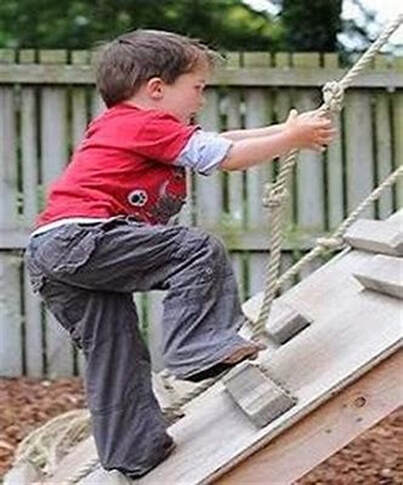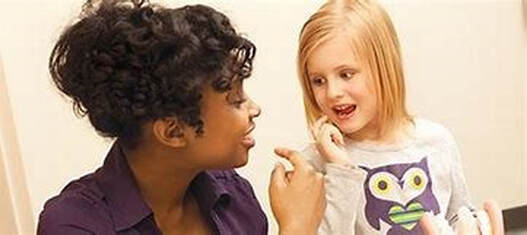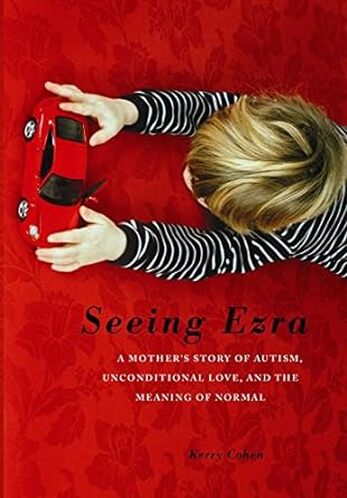What is the most concerning or destructive thing that is going on right now in your child’s world?
Luker, S. (2024; UNIT #3C) “Find the ‘outcome’ you are looking for.”
Before looking for a program, do these two things –
- Prioritize your child’s ‘needs’.
- Prioritize your ‘wants’.
Lack of…
- gross motor skills
- speech/language communication
- cognition
- social/personal awareness
- daily living skills
Luker, S. (2024); UNIT #3 What Is The Most Concerning? CHAPTER 1 –
GROSS & FINE MOTOR SKILLS (Including ‘proprioception’)
Depending on the age of the child, probably the fact that s/he may not be meeting their 'developmental milestones' could be due to poor motor skills. Both 'gross' (using large muscles involving walking and/or easily moving the body) and 'fine' (involving pincer and/or grasping skills) should be developing as expected. But if they are NOT developing typically, that may be because motor skill deficits are affecting the child’s necessary mobility, keeping them from becoming their best ‘independent’ selves.
Menear, et al. (2006) tell us that their informal observations have shown that many students with autism who have ‘low’ motor skills and few fitness abilities will have initial difficulty in traversing typical school or park playground equipment without assistance. Poor eye-hand coordination, trouble combining multiple motor skills into one task, and any structured balance related physical activities, as well as participating in group activities can be difficult. It all comes down to what works for you, your child, and your family.
< My Thoughts > “…trouble combining multiple motor skills into one task.”
Toileting, and even eating, require multiple motor skills to complete the task. This, in addition to the child perhaps not seeing or understanding the need for both, may combine to make both tasks difficult; or even impossible.
Gulsrud, et al. (2018) give us suggestions from their study that there may be deficits in gross and fine motor skills which are preventing successful toileting. Motor skills can be most concerning when delayed, or even limited.
Note: More about these concerns in my website’s FREE ASD Book; UNIT #3 (Including Chapter 1, Part 1, Tiptoeing gait; APPENDIX A – Toileting).
Luker, S. (2024); UNIT 3 WHAT IS MOST CONCERNING? CHAPTER 2 – SPEECH & LANGUAGE COMMUNICATION (Including non-verbal & assisted alternative speech)
Because social relations are a primary area of difficulty for children with autism, it is not surprising that effective social communication is significantly impaired for these children. Both the areas of communication and social skills are tightly interwoven and interdependent.
Therefore, the development of communication skills cannot be the sole responsibility of the speech/language pathologist. While s/he may provide the ‘guide posts’ and strategies, communication must be continually addressed by everyone coming in contact with the child.
Driver (2011) determines that developing communication skills will be difficult for those affected with autism. But there are many strategies you can employ, because we are born to communicate. Improve communication with a child and you will reduce frustration, tantrums and emotional outbursts.
< My Thoughts > “…Improve communication with a child.”
Some parents know what their child wants because s/he drags them there, or, they scream until you figure it out. It’s sort of like the old game of ‘Charades’. Okay, you’re getting warmer, almost there! Nope! Wrong way, getting cold! You may see a look of confusion when you ask your child what s/he wants because they think you know what they want, but you just don’t want them to have it.
Our Sonny is ‘non-verbal’, or as some say ‘non-vocal’. He doesn’t say any words so he’s non-verbal, but he really isn’t ‘non-vocal’ because when you say, “Show me what you want,” he may vocalize a noise. That noise can be a grunt to mean “Okay, I’ll show you, but with my eyes or touch.” And then when you say, “Sonny, is this what you want?”, he may smile (That’s it!). Or, he may look sad and ‘grunt’ (Nope! Try again!”); as he continues trying to guide you towards what he wants.
Luker, S. (2024); UNIT #3 What Is The Most Concerning?
UNIT 3 – CHAPTER 3 – Cognition & Temperament/Personality (Including, UNIT 3C ~ SOCIAL/PERSONAL AWARENESS & DAILY LIVING SKILLS)
Cherry (2020) considers ‘cognition’ the mental process requiring knowledge & understanding of what one is experiencing in their environment. Shows ability to use working memory, make judgments, reason, problem solve & make decisions. In the ordinary world, ‘cognition’ or the ability of the child to make sense of their world by asking and answering questions, appropriately. By participating in a back-and-forth conversation, appropriately and by learning through active listening and paying attention. Another way to show ‘cognition’ is by showing ability to use short-term and long-term memory; as well as being able to understand the world from someone else’s perspective.
< My Thoughts > “…able to understand the world…”
It is said that persons with autism often do not acquire ‘Theory of Mind’; seeing the world through another’s perspective. But, because the autistic brain is different with each person, this may confuse parents and practitioners, alike.
Cohen (2011) But there’s so much I read about autism that doesn’t fit Ezra. He had normal eye contact; at least once he is comfortable with someone. He initiates peek-a-boo and chasing games. He plays normally with most toys, albeit sometimes in rigid ways.
< My Thoughts > “…He plays normally…”
Children with autism may not have/use imagination or imitation to ‘play’ the same way ‘neurotypical’ children play. Some of the reasons for this have a possible explanation in the following –
Mesibov (2004) makes known a study which identifies and helps some of the unique ‘problem learning’ characteristics of students across the autism spectrum. This study offers learning strategies which can work towards a student’s strengths and interests. Taking them alphabetically, the study mentioned difficulty learning to overcome problems with – distractibility, generalization, organization, and sequencing.
- Distractibility takes many forms. Identifying the sources through careful assessment is crucial. The person may be distracted by the task, itself; by auditory and visual aspects of the environment, or, by things in the work area.
- Generalization skills can often be taught by taking skills learned at home or at school into the community. Taking the person on a ‘field trip’, or introducing them to an interesting workplace may help.
- Organization is very complex learning characteristic, requiring planning, implementation, and the ability to overcome unforeseen obstacles. Helpful can be developing systematic habits and routines, established through visual schedules, checklists, and other visual instructions.
Parents can find positive results with a reasonable amount of time and money invested in therapies and interventions. For each decision you make ask yourself, “Is there a big enough payoff for the physical, emotional, and financial sacrifices your family will make?”
Parents may make decisions to treatment of their child, not from a place of reason, but a place of desperation. Please, be careful not to do something without thinking it through; just because you think you should do something, even if it’s wrong.
References:
Cherry, K. (2020). What Is Cognition?; Retrieved online from – https://www.verywellmind.com/what-is-cognition-2794982/
Cohen, K. (2011). Seeing Ezra: A Mother’s Story of Autism, Unconditional Love, and the Meaning of Normal; eBook 2011 Edition.
Driver, J. (2011). Struggling with Communication - From the Inside Out; Retrieved online from – Psychology Today.com/
Gulsrud, A., Lin, C. et al. (2018). Self-injurious Behaviors in Children and Adults with Autism Spectrum Disorder (ASD); Journal of Intellectual Disability Research; V2:12, p1030-1042.
Luker, S. (2024); Know Autism, Know Your Child with < My Thoughts > by Sara Luker; Retrieved online from – www.sarasautismsite.com
End of DAY FIVE. Note: Excerpts from the book – (13% indicates location in the Kindle version of the eBook, instead of page numbers).
Sharing of my website and BLOG Comments welcomed.
Regards,
Sara Luker



 RSS Feed
RSS Feed